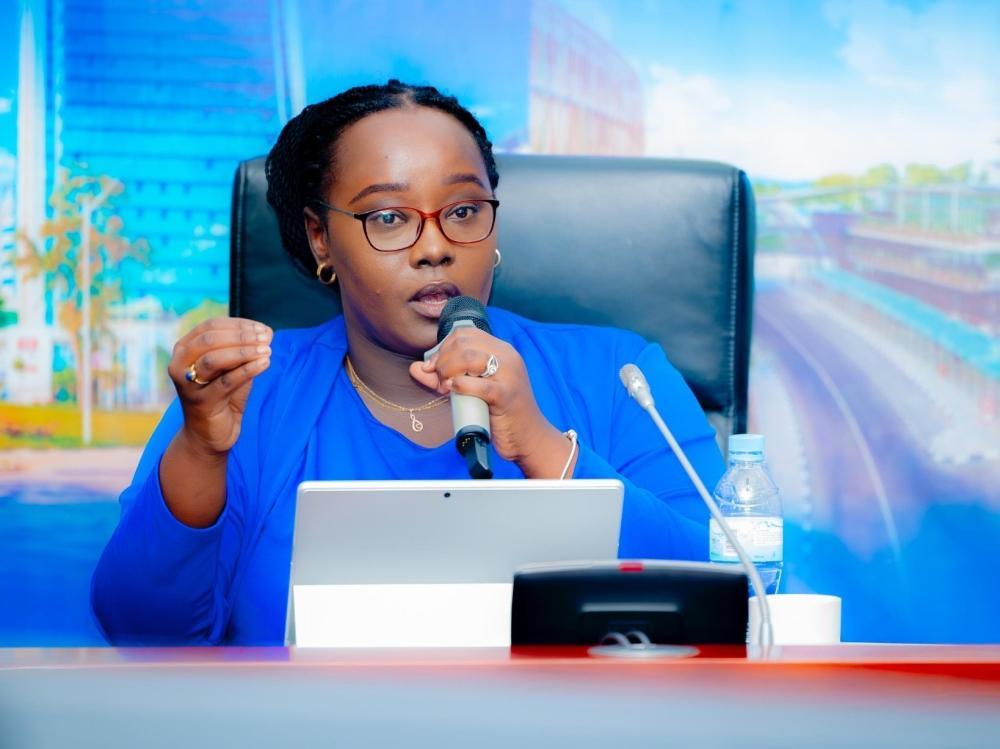Africa-Press – Rwanda. Officials at Rwanda Governance Board (RGB) have cautioned non-compliant faith-based organisations that have resorted to online preaching after losing their legal status or being temporarily closed for failing to fulfil certain requirements.
Recent regulations introduced by RGB necessitate that faith-based organisations meet several requirements, including proving that their places of worship comply with local construction laws. In addition, each organisation is required to collect 1,000 signatures from residents in their intended district of operation.
As part of other regulations that were already in place, faith-based organisations’ legal representatives and their deputies must hold a recognised theology degree or equivalent certification, especially if obtained from a foreign institution.
Leaders of faith based organisation during a meeting with RGB officials in Kigali on Wednesday, September 17. Courtesy
Speaking at a meeting with faith leaders in Kigali on September 17, Doris Uwicyeza Picard, Chief Executive Officer of RGB, said the board is aware that some revoked or suspended groups have shifted their activities online in an attempt to evade the law.
The meeting also featured discussions on compliance with the National Policy on Anti-Money Laundering, Countering Terrorism and Proliferation Financing (AML/CFT), among other issues.
“The reason why they are moving online is they believe that online is a lawless place, and that is not true. That is a message that we are putting across; we will be assessing this online preaching. All those that are found to be in contravention of the law will be held accountable,” Uwicyeza said.
Bishop Samuel Kayinamura, head of the Free Methodist Church in Rwanda and first vice-president of the Rwanda Interfaith Council, said shifting to online platforms without meeting regulatory requirements was problematic.
“Those who move online without the necessary qualifications, especially competence based, may risk misleading people. It is different when one meets the requirements.”
Faith leaders warn of rise in non-compliant online preachers
The faith leaders speaking with The New Times indicated possible increase of online preachers due to the regulations.
Sheikh Mussa Sindayigaya, the Mufti of Rwanda, pointed out that some may turn to unregulated online spaces to avoid compliance.
“A person may flee to the uncontrolled field of online. We have called for online churches to be regulated,” he said.
“Requirements like a bachelor’s degree in theology and registration certificates should still apply.”
He acknowledged the challenges of regulating online platforms but noted that services like YouTube have community guidelines to curb misuse.
“If someone starts an online ministry and later engages in inappropriate behaviour, they can be reported and banned. This shows that even with freedom, there are limits. With collaboration between the government and relevant institutions, regulation is possible,” he added.
Sheikh Sindayigaya warned of the risks posed by unqualified preachers spreading misinformation. “Someone may claim to have divine visions and call themselves a prophet without any skills, misleading people,” he said.
Gasana Umutesi, a pastor in Kigali, believes the new rules will push more preachers online, where requirements like 1,000 signatures and theology degrees do not apply.
“But I hope they will be held accountable. You can’t manipulate people, discourage health programmes, and hide behind religion just because you’re online.”
She urged the public to remain vigilant. “We must renew our mind-set and comply with regulations meant to protect us,” she added.
Desire Habyarimana, an online preacher known on his YouTube channel ‘Agakiza Tv’ and pastor at ADEPR Gatenga located in Kicukiro District, noted that online ministries were already growing but that the new regulations could accelerate the trend.
“The number of online preachers has been increasing over time, but these rules are now boosting it further,” he said.
He explained that while some closures were due to structural issues rather than a lack of preaching skills, others involved unqualified people who may now spread misinformation online.
“Some churches were shut down due to poor building conditions, often because of limited funds, even if their teachings were sound. They might continue online effectively,” he said.
For More News And Analysis About Rwanda Follow Africa-Press






